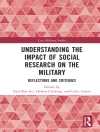Alongside other types of mass atrocities, genocide has received extensive scholarly, policy, and practitioner attention. Missing, however, is the contribution of economists to better understand and prevent such crimes. This edited collection by 41 accomplished scholars examines economic aspects of genocides, other mass atrocities, and their prevention. Chapters include numerous case studies (e.g., California’s Yana people, Australia’s Aborigines peoples, Stalin’s killing of Ukrainians, Belarus, the Holocaust, Rwanda, DR Congo, Indonesia, Pakistan, Colombia, Mexico’s drug wars, and the targeting of suspects during the Vietnam war), probing literature reviews, and completely novel work based on extraordinary country-specific datasets. Also included are chapters on the demographic, gendered, and economic class nature of genocide. Replete with research- and policy-relevant findings, new insights are derived from behavioral economics, law and economics, political economy, macroeconomic modeling, microeconomics, development economics, industrial organization, identity economics, and other fields. Analytical approaches include constrained optimization theory, game theory, and sophisticated statistical work in data-mining, econometrics, and forecasting. A foremost finding of the book concerns atrocity architects’ purposeful, strategic use of violence, often manipulating nonrational proclivities among ordinary people to sway their participation in mass murder. Relatively understudied in the literature, the book also analyzes the options of victims before, during, and after mass violence. Further, the book shows how well-intended prevention efforts can backfire and increase violence, how wrong post-genocide design can entrench vested interests to reinforce exclusion of vulnerable peoples, and how businesses can become complicit in genocide. In addition to the necessity of healthy opportunities in employment, education, and key sectors in prevention work, the book shows why new genocide prevention laws and institutions must be based on reformulated incentives that consider insights from law and economics, behavioral economics, and collective action economics.
Charles H. Anderton & Jurgen Brauer
Economic Aspects of Genocides, Other Mass Atrocities, and Their Prevention [PDF ebook]
Economic Aspects of Genocides, Other Mass Atrocities, and Their Prevention [PDF ebook]
Buy this ebook and get 1 more FREE!
Language English ● Format PDF ● Pages 656 ● ISBN 9780199378302 ● Editor Charles H. Anderton & Jurgen Brauer ● Publisher Oxford University Press ● Published 2016 ● Downloadable 3 times ● Currency EUR ● ID 5282343 ● Copy protection Adobe DRM
Requires a DRM capable ebook reader












